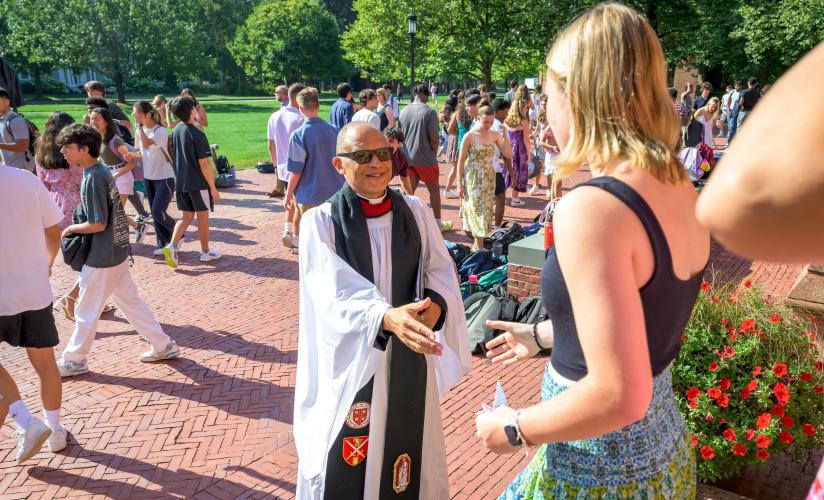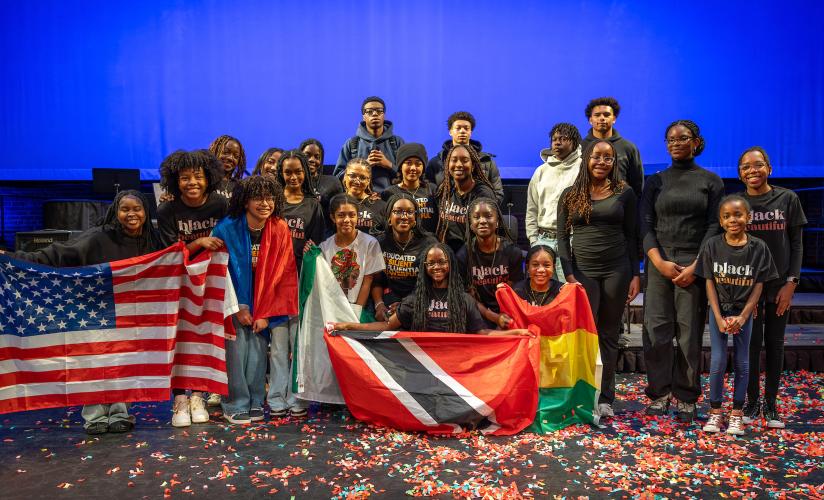

Meet Thomas Peters, the new St. Paul’s School director of counseling.
In the summer of 1983, Thomas Peters felt a whole new world open up for him when he participated in the St. Paul’s School Advanced Studies Program. Then 17 years old and a rising senior at Manchester Memorial High School, he chose advanced physics as his main class and made friends with other like-minded teens from across the state. The experience was life changing.
“It was a pleasant awakening to come into an environment where your primary mission wasn’t to be unnoticed and [instead] be surrounded by kids interested in learning,” says Peters. “It opened my eyes to what was possible, and I credit it with my deciding to go to Bowdoin [College] and pursue graduate education.”
This history makes Peters’ return to SPS feel particularly special. Earlier this month, he started as the school’s new director of counseling services at Clark House Health Center. For Peters, 56, the opportunity to work at the School is the natural next step in a career that has long been shaped by a sense of service.
“My first true love is actually teaching and supervising,” says Peters, who resides in Weare, New Hampshire, with his wife, Jennifer, and their 17-year-old son Nathaniel — a ’22 ASP graduate. “And we have an amazing group of counselors at St. Paul’s that I’m looking forward to working with.”
Peters’ passion for psychology began at Bowdoin, where he volunteered at a crisis shelter. Following graduation, Peters took a job as a residential counselor for individuals with both developmental and psychiatric diagnoses. Eventually, Peters earned a master’s in counseling from the Harvard Graduate School of Education and a doctorate in psychology from Suffolk University.
His professional life has included significant tenures as the assistant director of acute care services at Riverbend Community Health Center in Concord and director of psychology at Crotched Mountain Rehabilitation Center in Greenfield. Most recently, Peters was a clinical psychologist with LifeStance Health, where much of his patient work was done via telehealth appointments.
At SPS, Peters heads up a team of four other counselors who also work closely with Dr. John Bassi, the School’s medical director, and nursing coordinator Mary Marzelli. Peters says the experience the team brings to the School is invaluable, and after two years of working virtually, he’s invigorated at the chance to once again collaborate with colleagues and work with patients face-to-face.
Clark House is centrally located on the grounds, and that’s how Peters sees his department, too — at the core of the School community, with relationships that extend throughout the campus. He cites, for example, the importance of building strong relationships with faculty and heads of house, who are often on the frontlines of student crises. He believes the work his department does with other members of the SPS community can strengthen how the early moments of student crisis plays out. Maybe that work can actually avert a call to counseling services, says Peters, but even more importantly, it can go a long way toward “making the student feel supported and held” from the outset.
Peters is “also looking forward to us seeing beyond the paradigm of just being a counseling center.” By that he means he envisions a department that has an even more enhanced role in the School’s larger mission of helping students mature into healthy, grounded young adults who have a secure roadmap for navigating challenges as they move on to college and beyond.
“Development can be difficult and uncomfortable,” says Peters. “St. Paul’s is such a special place and it has this wonderful mix of things that you don’t find at other schools. To then also inject in there the ability to help kids develop their own ability for emotional regulation and take ownership of their own minds and responses can be quite empowering for them. It’s another way to help them truly grow and develop.”



